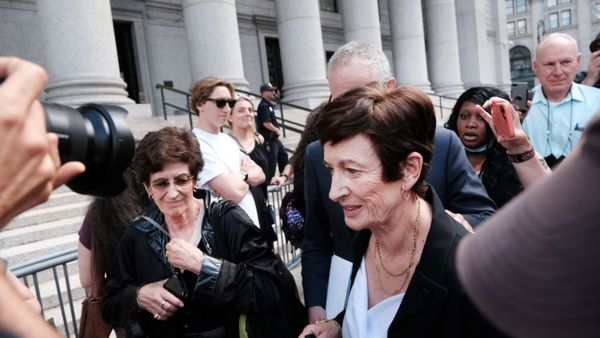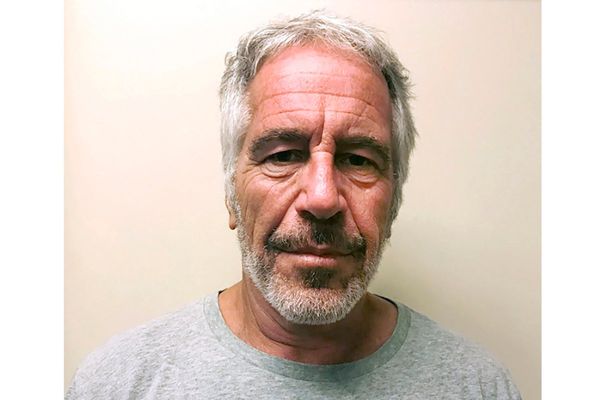
Beckah Amani likes to say that she was “born out of a love of music”. The 23-year-old singer-songwriter was raised in Tanzania by Burundian parents, who first met at church as teenagers.
Amani’s father was the choir conductor – “the cool dude who played everything” – and her mother wanted to get to know him. Amani relays mum’s pick-up line with deep affection: “She was like: ‘Can you teach me how to play guitar?’”
The couple had five children and wove music into their lives from an early age. “Some of my earliest memories are of my mum and dad playing the guitar around a fire under the stars in Tanzania – harmonising and sharing songs they grew up playing,” says Amani from her family’s home in Mount Tamborine, Queensland. They migrated to Australia when Amani was eight, and she began pursuing music as a career at 18. “If they weren’t supportive it would be funny, because I’d be like, ‘No, you guys introduced me to music – so you can’t complain’,” she laughs.
Amani, in turn, has honoured them on April, her eclectic, heartfelt debut EP. It arrives under the weight of expectation: Amani has already played at industry showcases Bigsound and The Great Escape, won emerging artist of the year at the 2021 Queensland Music awards and received extensive support from Triple J and sister station Unearthed with only a few singles under her belt.
Family, though, is still a priority: throughout our conversation, members of the Amani clan float in and out of view; she breaks into hysterics when her mum tries to phone her mid-interview.

A folk record that skirts the edges of R&B and the music Amani heard in Tanzania and east Africa, April plays like a memoir in miniature, charting the tumult of Amani’s early 20s, the racism and hardship she faced growing up black in rural Australia and her sky-high ambition for the future. In its quietest moments – such as the spoken-word interlude Autumn in Spring – Amani conjures those formative musical experiences.
“I wanted to recreate that memory of where music began for me,” she says. “Like you’re outside, and mum and dad are telling you a story”.
Music has been a constant through her life – a steady through-line that stayed with her and her family as they migrated. “As we learned different languages, and … went about our lives differently, music was the one thing that kept us bonded,” she says. “At home, something we could do was sing in our language.”
In rural Western Australia, where she and her family spent her early years, there was intense pressure to fit in among largely white society.
“Eleven to 15 is a very impressionable age,” says Amani. “[I was] already an immigrant who looked different and sounded different, acted different, and trying to relate to people was hard. There was a lot of bullying [and racism], and one way that I did try and make sense to other people was to change my personality.”
The repressed pain of those early years came flooding back when, amid the 2020 resurgence of the Black Lives Matter movement, Amani wrote Standards – the gorgeous, heartbreaking centrepiece of April. “During the protests, I reflected on how racism affected me growing up and how much I suppressed as a kid growing up as a teenager as well. I mostly just hadn’t dealt with it,” she says.
Standards finds Amani speaking plainly about what she experienced: “I put aside my heritage / leaned into their privilege / subdued my personality so I could make them comfortable.”
“I wanted to add a bit of hope,” she says. “But also to give encouragement to people of colour to kind of stand up for who they are.”
Standards adds heft to an already weighty EP that, at its core, deals with the symphony of horrors twentysomethings have to face this decade.
“Growing up right now, it’s a never-ending autumn – we’re stuck in the middle of this whirlwind, this chaos of beauty and madness,” says Amani. The record was conceived during the pandemic, when it felt like shit was hitting the fan in every way.
“I started thinking about not just Covid, but climate change, and also being a young person trying to figure out who you are, your identity, what you think about love, what you want out of life.”
The Hills, the EP’s emphatic highlight, plays like a sweetened spin on Frank Ocean’s Super Rich Kids, superimposing the iconic geography of Burundi on the nebulous “hills” that appear in so many pop songs. In it, Amani namechecks London’s 20,000-capacity O2 arena – a venue she hopes to one day play.
“I was thinking ‘OK, what do I want to do with my music?’” she recalls. The answer wasn’t “riches or mansions” but what her parents have always wanted for her – “a dream of stability”. It’s less about material wealth, but the wealth of possibility she sees ahead of her: “Where I want to go and all the things I could achieve.”







